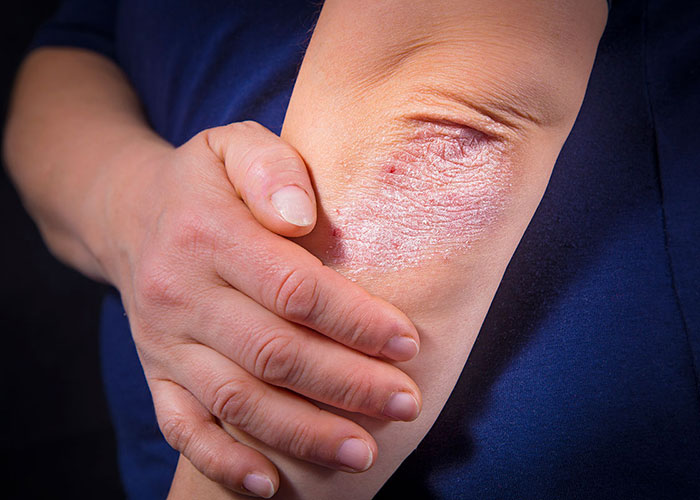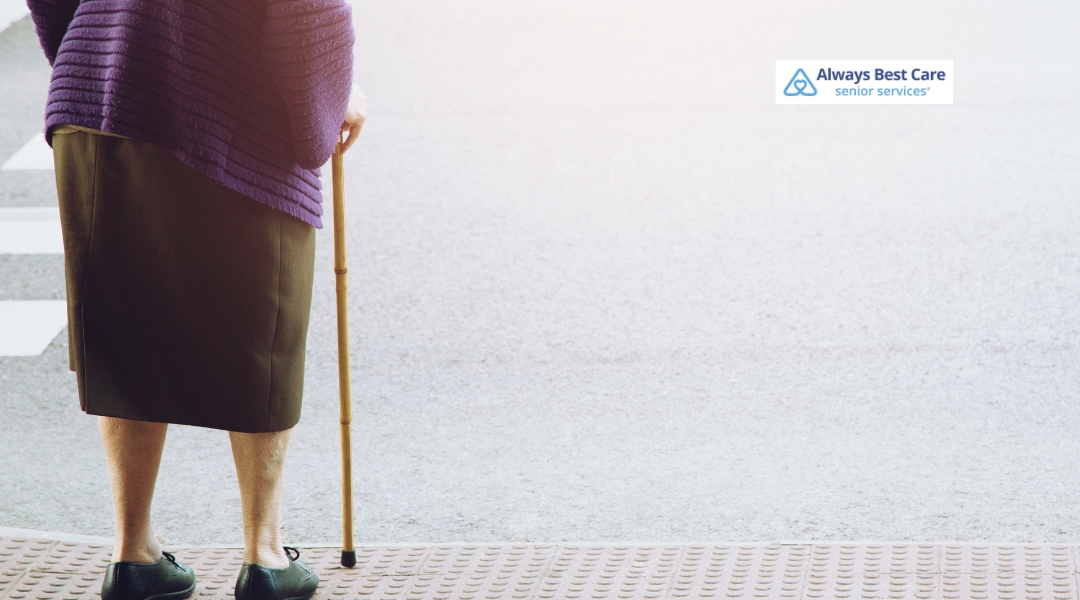Managing Psoriasis Flare-Ups: Tips for Seniors

Psoriasis is an autoimmune disease that can affect the skin, joints, and other areas of the body. It is estimated that more than 7.5 million adults in the United States are affected by this disease. While there are different types of psoriasis, the most common is plaque psoriasis which is characterized by thick patches of red, raised skin often on the elbows, knees, scalp, stomach, and lower back. However, these dry, scaly patches of skin can appear anywhere on the body.
Doctors are not sure exactly what causes psoriasis, but they believe that there are often triggers that affect the immune system and how quickly the skin grows and sheds skin cells. The triggers may vary from one person to the next, but flare-ups can be painful, itchy, and uncomfortable. Knowing how to effectively manage symptoms can make living with psoriasis easier.
Avoid Common Triggers
Paying attention to what you were doing, how you were feeling, and if there was any injury to your skin before you got a psoriasis flare-up can help you identify potential triggers. This could include things like:
- Stress: Incorporate activities such as meditation, deep breathing, yoga, or journaling into your daily routine. If you start to feel overwhelmed, take a break and do something you find relaxing. Surround yourself with people who help you feel calm, not agitated and stressed.
- Illness: While it can be difficult to prevent yourself from ever getting sick, try to avoid people who are not feeling well, make sure you’re frequently washing your hands and wiping down high-contact surfaces, and incorporate immune-boosting foods into your diet. If you do feel sick, be proactive in treating it.
- Skin injury: Protect your skin from sun damage by wearing sunscreen and covering up in light layers when you go outside. Bug bites are another common trigger, so use bug repellents on your skin and natural deterrents in outdoor spaces such as citronella candles or lightly blowing fans. Also, pay attention to your surroundings to minimize cuts or scrapes.
- Weather: Dry, heated air in the winter can make your skin more prone to psoriasis flare-ups, as can cold outdoor weather. Indoors, use a humidifier to add moisture to the air and apply lotion to your skin. When outside, bundle up to stay warm and keep your skin protected.
Managing Psoriasis Flare-Ups
If you do find that you’ve developed the tell-tale scaly, red patches of psoriasis, make sure you treat it right away. Your doctor may have prescribed a topical ointment that you can apply to help alleviate itching and break down skin cell build up. Creams may include steroids, vitamin D, or salicylic acid.
It can be a good idea to moisturize your skin throughout the day with a nourishing lotion. Apply it whenever you notice your skin becoming dry or cracked. Look for products specifically designed for psoriatic disease.
When showering or bathing, turn down the water temperature to warm instead of hot, and try to be in and out in 10 minutes or less. Make sure you’re using a cleanser that is gentle on your skin and won’t dry it out. Apply moisturizer as soon as you get out.
And while it can be challenging, avoid scratching psoriasis as it can make the condition worse. Keeping skin hydrated can minimize itching, as can applying a cold compress to the area. Try to distract yourself to take your mind off things and keep you from scratching.
Partnering with an in-home care provider can help you stay on top of caring for your psoriasis and handling flare-ups. A caregiver can help you work to avoid triggers, take good care of your skin, and follow your physician’s orders for managing your condition. They can also assist with a variety of tasks when you’re experiencing a flare-up and might not be feeling your best. Contact Always Best Care at 609.228.5781 to schedule a free consultation and learn more about the benefits of in-home care.





